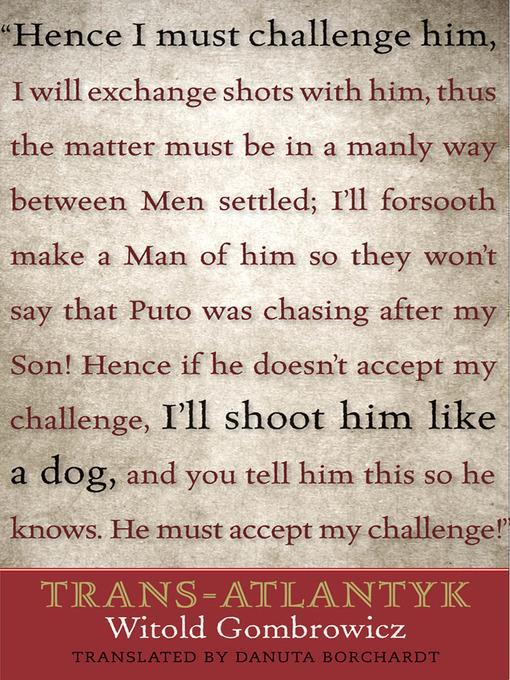
Trans-Atlantyk
An Alternate Translation
- اطلاعات
- نقد و بررسی
- دیدگاه کاربران
نقد و بررسی

April 25, 1994
Gombrowicz (1904-1969) is best known in this country for the meditations on life and literature contained in his Diary , but he wrote several novels that are highly regarded for their dazzling stylistics and exploration of the Polish national character. This semi-autobiographical work, hitherto unavailable in English, is written in the narrative style of the 17th- and 18th-century and in the voice of a country squire. In it, Gombrowicz pokes fun at the insular and parochial Polish community living in Argentina just before WW II. Like the author, the eponymous narrator is a young Polish writer who is stranded abroad when the Nazis invade his homeland. (Gombrowicz himself never returned to Poland and lived in exile for the rest of his life.) Penniless, he is ``adopted'' by the Polish embassy staff and emigre community. A fantastical series of twists and turns follow in which the young man finds himself, after a debauched night of drinking, involved as a second in a duel. The often farcical adventures prove a real dilemma for the narrator, who is torn between his Polish identity and a new emigre status. Regarded as the author's most personal piece of fiction, this novel benefits from a scholarly introduction by Stanislaw Baranczak.

February 1, 1994
Gombrowicz (1904-69), considered by many to be the most important Polish author of the 20th century, here builds a satiric novel around a Polish writer who embarks on a small ocean cruise only to be caught in Argentina at the outbreak of World War II. Thus, the protagonist begins a series of exasperating attempts to reconcile himself as a forced expatriate to both native writers and writers of the Polish emigre community; to the ideas of exile and patriotism; and to the dialectic between Form and Chaos, that is "between total subordination of the ego to the generally accepted patterns of behavior . . . and total liberation from all that is inherited or imitated." Some of the more bizarre scene from this novel remind the reader of Bruegel paintings. Because the novel is written in the idiom of the gaw eda, an oral genre once popular among Poland's provincial nobility, the translators have chosen 17th- and 18th-century English as their linguistic medium. They consider the version that results experimental. A curious work, not easily understood; recommended for large public libraries and academic collections.-- Olivia Opello, Onondaga Cty. P.L., Syracuse, N.Y.




دیدگاه کاربران